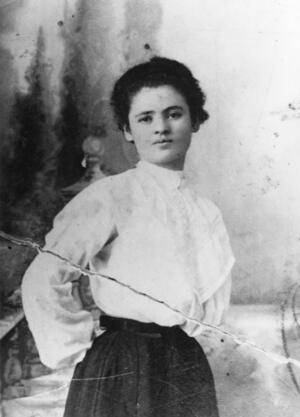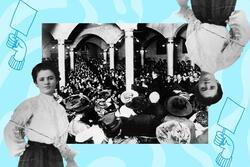Celebrate Labor Day with New Protections For Pregnant Workers
There's an extra reason to celebrate this Labor Day, with the implementation of the Pregnant Workers Fairness Act, a set of regulations that protect pregnant and postpartum workers against discrimination and provide them with the right to reasonable workplace accommodations. The passing of this landmark legislation’s final regulations offers an opportune time to consider Jewish contributions to labor rights and our commitment to the well-being of our communities.
Workers' rights have an important place in Jewish law and tradition. According to the Torah, employers must fairly treat and compensate workers, particularly poor laborers for whom there is a social class imbalance. Perhaps it's no surprise, then, that Jewish immigrants have had a profound impact on labor rights in the US. Jewish immigrants in the late nineteenth and early twentieth centuries largely found themselves in lower class labor roles when they arrived, often working in factories under dangerous and exploitative conditions. To advance the rights of workers, Samuel Gompers, one such immigrant, founded the American Federation of Labor (AFL) in 1886. The AFL brought together unions from across different sectors toward the common goal of worker well-being, and later merged with the Committee for Industrial Organization, another group of unions, to form the modern-day AFL-CIO.
The need for unions was urgent. Women in particular faced harsh working conditions with low pay in garment factories. In 1905, Jewish women took the lead in labor organizing, including recent immigrant Clara Lemlich, who organized women into the International Ladies Garment Workers Union, which forced male union leaders to include women workers in strikes.
Despite the presence of unions, anti-worker practices continued, and led to loss of life, such as the 1911 Triangle Shirtwaist Factory Fire, a deadly blaze in a Greenwich Village factory that killed 146 workers, the majority of them female and either Jewish or Italian immigrants. Following the fire, strikes led by activists including Clara led to a number of legislative reforms to prevent future tragedy, including requirements for accessible exit routes, fire extinguishers, fire alarms, and emergency sprinklers.
When workers’ rights become a matter of life and death, as was the case in the Triangle Shirtwaist Factory Fire, Jewish law is clear: the sanctity of life comes first. A focus on well-being, on cherishing the lives of people made in the image of God, features heavily in the book of Genesis. Known as pikuach nefesh—the prioritization of life above all else—this value is prized so highly in Jewish law that it is even permitted to break the Sabbath if doing so could save someone's life. Laws that regulate worker well-being, from those passed in the aftermath of the Triangle Shirtwaist Factory Fire to modern-day regulations such as the Pregnant Workers Fairness Act, honor this principle and the inherent value of each person.
While worker safety has increased in many professions since the early twentieth century, pregnant and postpartum workers have remained especially vulnerable members of the workforce, with one in five pregnant workers experiencing discrimination in 2022. This discrimination has consequences that are both financial (lowered earnings potential) and, more importantly, potentially life-threatening. In one case brought against Walgreens, a pregnant employee was denied access to a doctor’s appointment after bleeding during a shift. She quit, but still lost the pregnancy to miscarriage, and ultimately won a lawsuit against the company.
The Pregnant Workers Fairness Act provides much-needed protections to pregnant and postpartum women in the workplace, making it illegal to discriminate against pregnant workers in the hiring process, and requiring employers to provide reasonable accommodations to pregnant and postpartum workers for conditions including or related to pregnancy and childbirth.
While the law was passed in June 2023, the Equal Employment Opportunity Commission (EEOC) recently updated the regulations, with the rules going into effect in June 2024. The final regulations include four workplace accommodations that the EEOC has said will almost always be considered reasonable: providing additional bathroom breaks, letting workers sit, and allowing workers access to food/water and time for breaks in which to consume them.
To ensure that this legislation is accessed by pregnant and postpartum workers in need, it is crucial for people to know about the rights they have under this new law. Information, resources, and ways to file a complaint can be found on the Equal Employment Opportunity Commission website.








